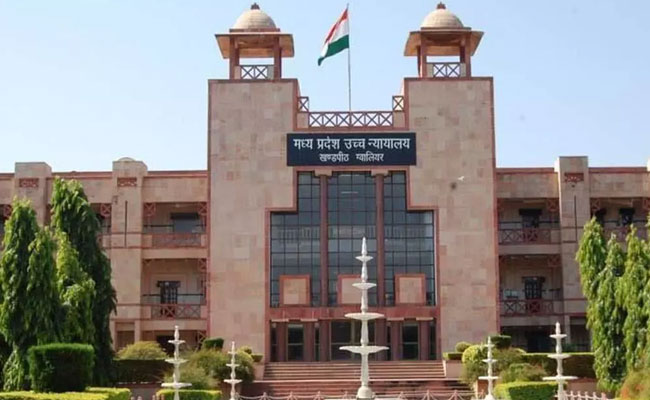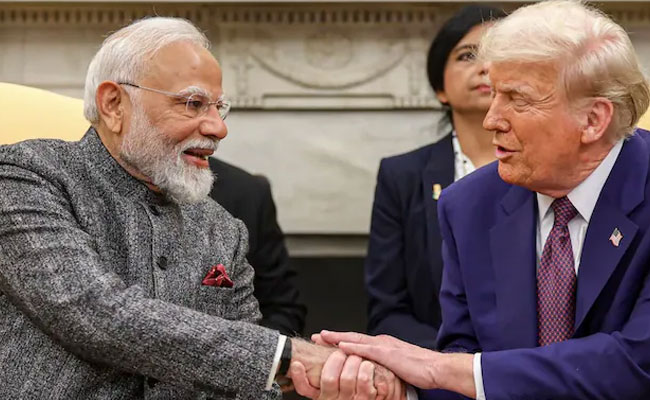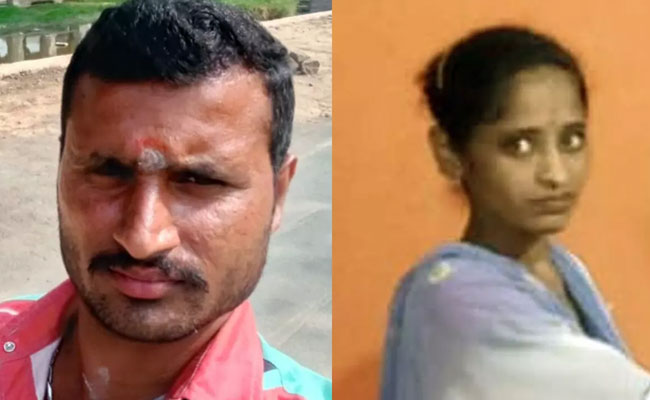New Delhi, Apr 7: Explicit tests and exams are completely inappropriate assessment tools for children up to class 2 and written tests should be introduced from class 3 onwards, the draft National Curriculum Framework (NCF) has recommended stressing that assessment methods should be such that they do not contribute to any additional burden for the child.
The framework which is being developed on the lines of new National Education Policy (NEP) suggests that two important methods of assessment that are appropriate for the foundational stage are observations of the child and analysing artefacts that the child has produced as part of their learning experience.
The draft notes that explicit tests and examinations are completely inappropriate assessment tools for the Foundational stage (preschool to class 2).
"Assessment should allow for diversity among children and in their learning. Children learn differently and express their learning differently too. There might be many ways to assess the achievement of a learning outcome or competency. The teacher should have the ability to design different kinds of assessment for the same learning outcome and use each assessment appropriately.
"Assessment should enable recording and documentation. Children's progress should be described and analysed through systematic collection of evidence. Assessment should not contribute to any additional burden for the child. Assessment tools and processes should be designed such that they are a natural extension of the learning experience for the child," it adds.
Describing the assessment for preparatory stage (class 3 to 5), the draft recommends that "written tests should be introduced at this stage".
"A variety of assessment methods should be used to promote learning. Portfolios can be used to capture student progress holistically through their work. This could also provide a reliable picture of their learning to parents. Peer and self-assessments could also be introduced to help students monitor the trajectory of their own learning.
"At the end of the preparatory stage, there should be a comprehensive summative assessment of the student's readiness to enter the middle stage where several new curricular areas are introduced," it adds.
The education ministry released a "pre-draft" of the NCF for school education on Thursday and invited suggestions from stakeholders such as students, parents, teachers and scholars.
The draft prepared by a panel headed by K Kasturirangan, former ISRO chief, suggests that at the middle stage (class 6 to 8), the focus of the curriculum should move to conceptual understanding and higher order capacities.
"Therefore, classroom assessment techniques such as projects, debates, presentations, experiments, investigations, role plays, journals and portfolios should be used to assess learning. Regular summative assessments at this stage will help students synthesize their learning at logical intervals such as year-end, term-end, unit-end. Summative assessments comprising multiple-choice questions and constructed responses like short and long answer, may be used periodically," it says.
In the secondary stage (class 9 to 12), the panel has asserted that comprehensive classroom assessments should be effectively practised for facilitating meaningful learning and constructive feedback. Regular summative assessments should be conducted for recording students learning against competencies.
"Self-assessment will play a key role in student learning at this stage. Students should be facilitated to monitor what they are learning and use the feedback from this monitoring to adjust, adapt, and decide their own strategies for learning.
"Summative assessments can be designed using case-based questions, simulations, and essay-type questions to enable assessment of competencies. At this stage, students should also be prepared to undertake the board examinations and other selection tests to gain access to higher education and livelihood opportunities," the draft adds.
According to ministry officials, the textbooks as per the new NCF will be introduced from next year.
The Education Ministry has designed four NCFs based on the 5+3+3+4 curricular and pedagogical' structure that NEP 2020 has recommended for school education.
The ministry launched the NCF for foundational stage (NCF-FS) for children between ages 3-8 years in October 2022. In continuation of that policy, the next NCF for school education is being prepared.
Revamping class 10 and 12 board exams, aligning the shift from 10+2 structure to 5+3+3+4 structure and emphasis on developmental perspectives suggesting curricular and pedagogical shifts at different stages - foundational, preparatory, middle and secondary - are among the recommendations made in the pre-draft.
The NCF has been revised four times - in 1975, 1988, 2000 and 2005. The new proposed revision will be the fifth of the framework.
Let the Truth be known. If you read VB and like VB, please be a VB Supporter and Help us deliver the Truth to one and all.
Indore (PTI): The Indore bench of Madhya Pradesh High Court on Tuesday set up a commission of inquiry comprising a former HC judge to probe the issue of water contamination in city's Bhagirathpura, saying the matter requires probe by an independent, credible authority and "urgent judicial scrutiny".
It also directed the commission to submit an interim report after four weeks from the date of commencement of proceedings.
A division bench of Justices Vijay Kumar Shukla and Alok Awasthi constituted the commission while hearing several public interest litigations (PILs) filed simultaneously regarding the deaths of several people in Bhagirathpura due to the consumption of contaminated water.
The HC reserved the order after hearing all the parties during the day, and released it late at night.
The state government on Tuesday told the HC that the deaths of 16 people in Indore's Bhagirathpura area was possibly linked to a month-long outbreak of vomiting and diarrhoea caused by contaminated drinking water.
The government presented an audit report of 23 deaths from the current gastroenteritis epidemic in Bhagirathpura before the bench, suggesting that 16 of these fatalities may have been linked to the outbreak of vomiting and diarrhoea caused by contaminated drinking water.
The report, prepared by a committee of five experts from the city's Government Mahatma Gandhi Memorial Medical College, stated that the deaths of four people in Bhagirathpura were unrelated to the outbreak, while no conclusion could be reached regarding the cause of death of three other people in the area.
During the hearing, the high court sought to know from the state government the scientific basis behind its report.
The division bench also expressed surprise at the state government's use of the term "verbal autopsy" in relation to the report, sarcastically stating that it had heard the term for the first time.
The HC expressed concern over the Bhagirathpura case, stating that the situation was "alarming," and noted that cases of people falling ill due to contaminated drinking water have also been reported in Mhow, near Indore.
In its order, the HC said the serious issue concerning contamination of the drinking water supply in Bhagirathpura area allegedly resulted in widespread health hazards to residents, including children and elderly persons.
According to the petitioners and media reports, death toll is about 30 till today, but the report depicts only 16 without any basis or record, it said.
It is averred that sewage mixing, leakage in the pipeline, and failure of civic authorities to maintain potable water standards have led to the outbreak of water-borne diseases. Photographs, medical reports, and complaints submitted to the authorities prima facie indicate a matter requiring urgent judicial scrutiny, the HC said.
"Considering the gravity of the allegation and affecting the right to life under Article 21 of the Constitution of India and the need for an independent fact-finding exercise, the Court is of the opinion that the matter requires investigation by an independent, credible authority," it said.
"Accordingly, we appoint Justice Sushil Kumar Gupta, former judge of the Madhya Pradesh High Court, a one-man commission of inquiry into the issues relating to water contamination in Bhagirathpura, Indore, and its impact on other areas of the city," the HC added.
As per the order, the commission shall inquire into and submit a report on the cause of contamination -- whether the drinking water supplied to Bhagirathpura was contaminated; and the source and nature of contamination (sewage ingress, industrial discharge, pipeline damage etc).
The panel will also probe the number of actual deaths of affected residents on account of contaminated water; find out the nature of disease reported and adequacy of medical response and preventive measures; suggest immediate steps required to ensure safe drinking water as well as long-term infrastructural and monitoring reforms.
It will also identify and fix responsibility upon the officers and officials found prima facie responsible for the Bhagirathpura water contamination incident, and suggest guidelines for compensation to affected residents, particularly vulnerable sections.
The commission shall have powers of a civil court for the purpose of summoning officials and witnesses; calling up records from the government department, hospitals, laboratories and civic bodies; ordering water quality testing through accredited laboratories; conducting spot inspections.
All state authorities involving district administration, Indore Municipal Corporation, public health engineering department and Madhya Pradesh Pollution Control Board shall extend full co-operation and provide records as sought by the commission, it said.
The state government shall provide office space, staff, and logistical support to the commission, it said.
During the hearing in the day, the state government also presented a status report to the court in this matter.
According to reports, a total of 454 patients were admitted to local hospitals during the vomiting and diarrhea outbreak, of whom 441 have been discharged after treatment, and 11 are currently hospitalised.
According to officials, due to a leak in the municipal drinking water pipeline in Bhagirathpura, sewage from a toilet was also mixed in the water.





